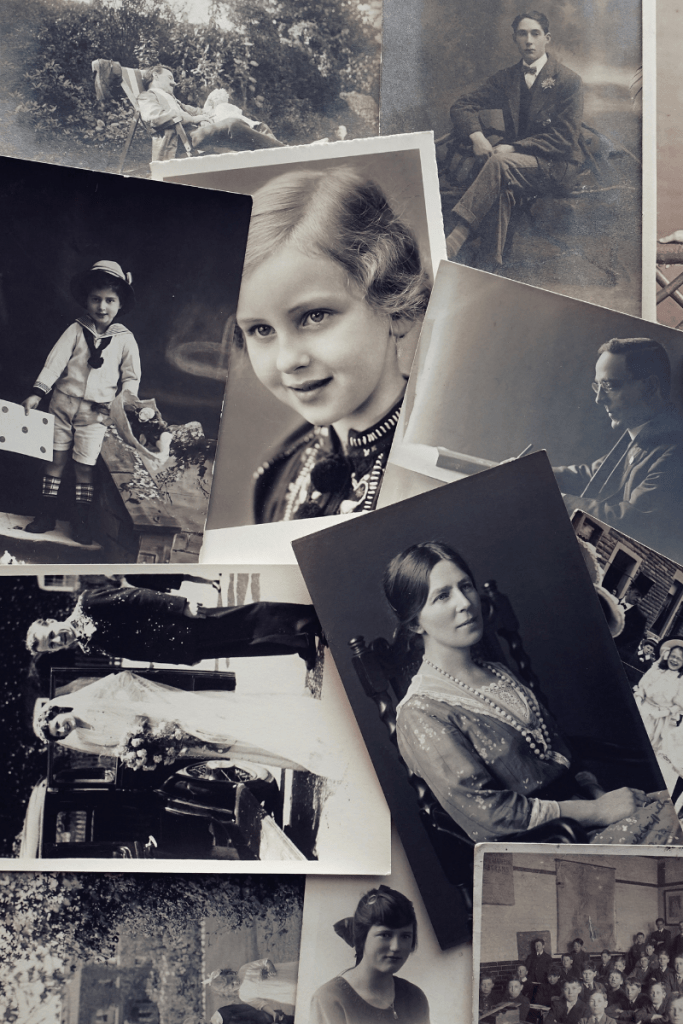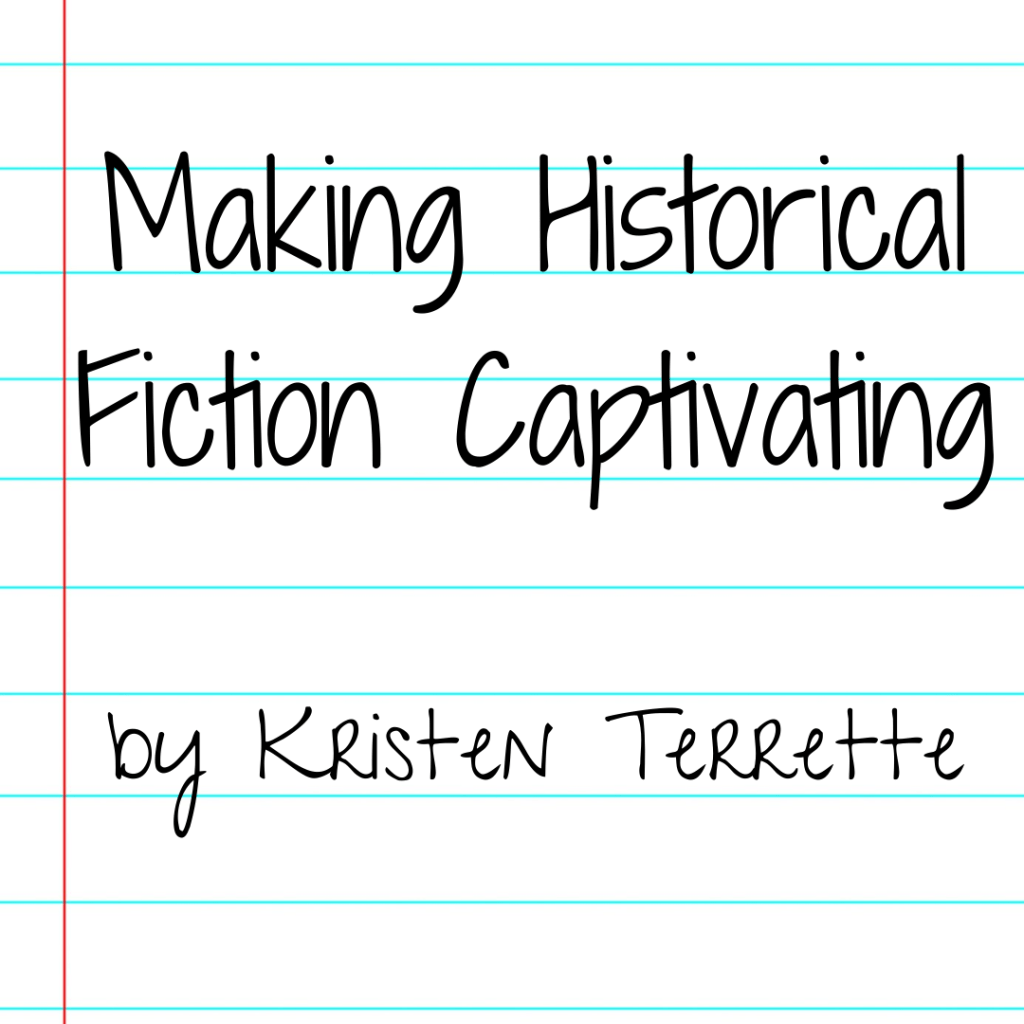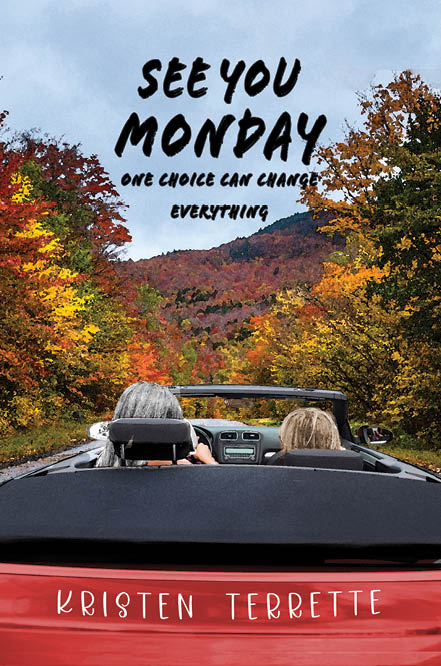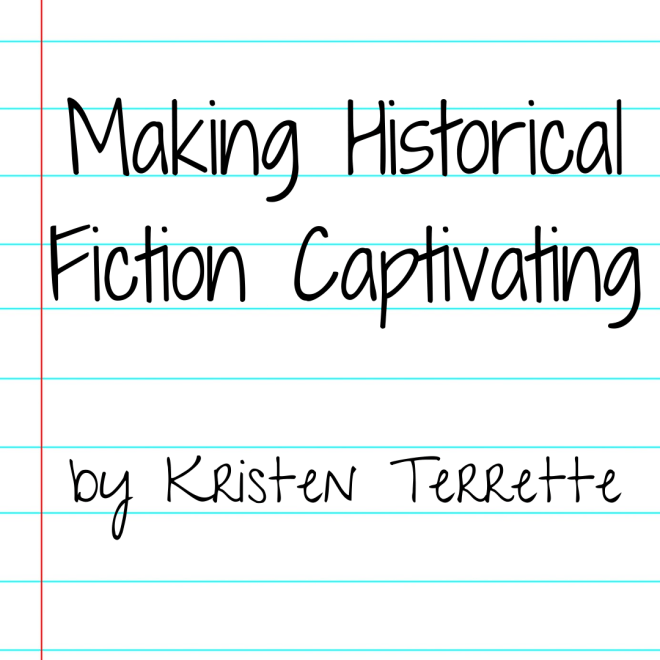
I’ve often said that I remember more history from historical fiction than from my formal education (sorry, Mr. Hall, just saying). For me history texts can often feel so tedious. Boring. Unrelatable. Enter historical fiction, characters to make history relatable, and voila, it’s interesting!
I admire authors who can work this magic, so I’m happy to introduce Kristen Terrette, author of See You Monday, to share how she makes historical fiction captivating for her audience.
See You Monday held my attention from the first page, so I knew that Terrette had done a fabulous job writing the story (which is really two compelling stories in one).
Let’s see what Terrette recommends for authors wanting to make their historical writing come alive.

History classes were my favorite, well, aside from my English/Lit ones. Yeah, I was that nerd, not really an over-achiever academically, but certainly a lover of school and learning when it came to certain subjects.
So, it shouldn’t have been surprising when I started writing a time slip novel titled, See You Monday. One where the story alternates between a high school senior in the present day back to the 1960s during the civil rights movement. So, while it shouldn’t have been shocking, it was!
You see, I didn’t read many historical novels at the time, but when my story called for the shift back to the sixties, I found a true love for writing about an era gone by. In fact, my current novel in the works also goes back in time, and I’ve relished researching for it as much as I did my first story.
I’m still learning how to write historical fiction in a way that captivates my audience, but I’ve recognized a few things as must haves when I write from the point of view of a different era.
Hopefully, these tips will help if you’re considering or currently writing a novel which includes history.
- You must write in an era OR on a theme or a cause you’re fascinated by. What I mean is, we all have certain interests. They seem to happen naturally—like God placed them there. So, what are yours?
For me, I’m passionate about racial reconciliation and unity. This theme threads through my stories, and I enjoy watching media, reading, and researching the civil rights movement. I love documentaries about Dr. King, desegregation, and President Kennedy. I grew up in the South, so I crave knowledge to better understand how we got some things so wrong in our nation’s past. I don’t particularly engage with stories from the Great War, i.e. World War One. I cannot tell you why because I don’t understand why myself. I do know it would be hard to pen a novel on those years in history, as my words wouldn’t come from a place of passion. So, what are you passionate about? Write about that.
- You must put in the “time” researching the “time.” Be willing to immerse yourself, happily going down the rabbit holes of information on the web. Watch documentaries, sometimes twice.
It’s easy for me to plunge into YouTube footage from the Freedom Summer movement in Mississippi or the March on Washington for Jobs and Freedom, where Dr. King gave his infamous “I Have a Dream” speech. It’s because I love learning about this time.
But, I’d take it even further. I think it’s even important to watch and research footage or read articles from events which might not be pertinent to your story. Take President Kennedy’s assassination. I’ve watched everything on television I could find, even the conspiracy theory shows. But I don’t mention any conspiracy theories in my novel. These were likely not even formed until well after my book’s timeline. However, watching real film from that time period brings a new understanding, and it bleeds onto the paper. I can picture what a crowd would’ve been wearing, the hat a man would’ve taken off when hearing the tragic news, the itchy polyester fabric of their suits, or the flashy color of a woman’s heels. My imagination can run free.
So, put in the time. Your reader will appreciate and love your stories without even knowing the reason. You will have seamlessly brought them into a new era, and they’ll never forget it. And hopefully, never forget you, becoming a reader of yours for life. ☺
- You must actually read historical novels for fun. And I don’t think it has to be from the same time period as you’re writing in! The ones I read certainly aren’t! You see, historical novels have a different feel than contemporary ones. There’s a nostalgia about them that present day stories can never have. And if you don’t understand what I mean, then you may need to read more historicals. ☺
Oddly, as I’ve mentioned, this was hard for me. I was a contemporary story lover through and through. I was a fake. Trying to write novels which go back in time while not even liking them myself left me a hypocrite. So, I intentionally started reading some and found my love for them and certain time periods grow. It was a great decision. Now, I’m not a façade, and I’m learning from the pros. Give it a try!
Thank you, Kristen! I learned (and remember!) much American history from See You Monday, and I look forward to reading your next release!

Senior year. The homestretch.
Honor student, Grace Warner, had it easy. Popularity, friends, attention from her crush, even a soccer scholarship offer—if only she can figure out her senior project to graduate on time. Getting approval to write about someone’s life-changing event, Grace recruits her sassy grandma as her mentor who can’t wait to tell the crazy story from her childhood.
Events in the early sixties are words in history books to Grace, but her grandma lived them. She witnessed the civil rights movement in full swing, desegregation becoming a reality in her southern town, Martin Luther King, Jr. moving the country with his iconic speech, and the country coming to a halt when President Kennedy was assassinated.
Grace loves finding out her family history but didn’t know the project would have her noticing hardships and prejudices at her school she hadn’t before. When the homecoming court is announced and new kid, Jacob Horton, is nominated as a colossal prank, it brings Grace to a choice, much like her grandmother years before her. God is about to use her in a miracle if she chooses correctly. If she fails, a life could be lost.

Kristen’s passionate about storytelling and helping people take their next steps in their relationship with Jesus. She lives forty-five minutes outside of Atlanta, GA. where she served as a Children’s Ministry Director for many years. With the support of her husband and two children, she now stays home writing fiction and non-fiction. She also serves on the women’s leadership team at her local church and writes for Crosswalk, Sharing Our Stories Blog, and Wholly Loved Ministries. You can check out her latest articles as well as her latest Young Adult novel, See You Monday, at www.kristenterrette.com.
Follow Kristen on:
Readers, what are some of your favorite historical fiction books? Authors of historical fiction, what tips do you have for authors wanting to write history?

I like your advice on immersing yourself in a time. Like you said, not all your research will appear on the page but it does give you a feel for the time.
LikeLiked by 1 person